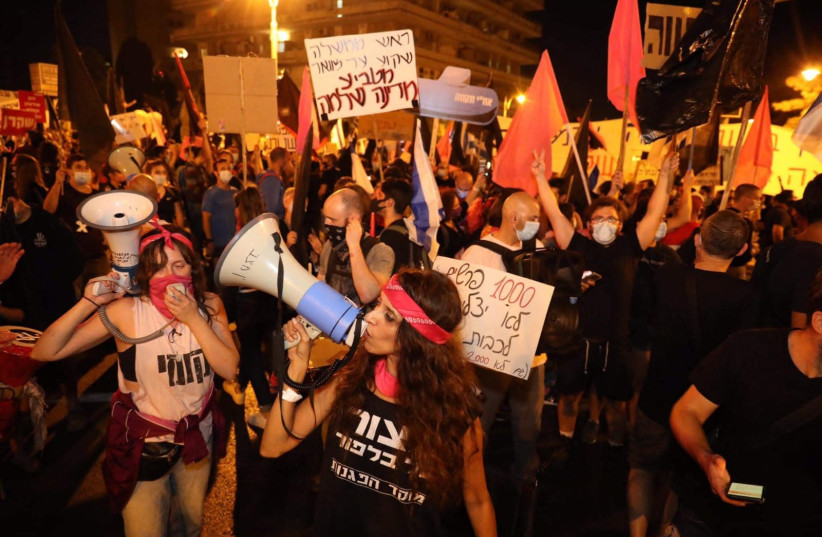President Isaac Herzog, during the traditional Slihot penitential prayers at the President’s Synagogue on Wednesday evening, condemned violence, both verbal and physical, arising from the upcoming elections.
This did not come out of nowhere. Indeed, the political campaigns launched by parties on all sides of the political spectrum have been aggressive in quality. This trickles down from the campaign leaders to their supporters, who in turn take on more menacing mannerisms.
This begins as comments on social media, turns into verbal yells and chants and then evolves into physical violence on the streets.
“Verbal violence never remains that way. Concerningly, we see insults turning into physical violence, into curled fists, into assaults, into bloodshed. One cannot avoid the disturbing thought: What’s next?”
Israeli President Isaac Herzog
“Verbal violence never remains that way,” Herzog said in his Wednesday speech. “Concerningly, we see insults turning into physical violence, into curled fists, into assaults, into bloodshed. One cannot avoid the disturbing thought: What’s next?”
His concerns are not out of place. The protests expressing opposition to former prime minister Benjamin Netanyahu have been met with violence in the past, with Likud supporters first verbally, then physically attacking the protesters and leaving people injured, some of whom even had to be evacuated to the hospital.

While he was opposition leader, Yair Lapid said back in July 2020 that the blood of the protesters was on Netanyahu’s hands.
In 2021, Labor head Merav Michaeli’s staff was physically assaulted by Likud supporters who hit her cameraman and cursed at the top of their lungs.
Shortly thereafter, Amir Haskel, one of the leaders of the anti-Netanyahu protests and a former IDF general, was attacked during an anti-Netanyahu protest across from the Prime Minister’s Residence.
Israeli elections are back, and so is violence against protesters
Now that Israel is heading back to elections, the anti-Netanyahu protests are back – as is the violence that is targeting the protesters.
Just a couple of weeks ago, protesters were attacked in Hod Hasharon when they were holding signs and chanting at the top of a bridge over an intersection. A group of ATV riders stopped near one of the demonstrations on the Ramat Hadar Bridge and began hitting protesters with helmets and fists, knocking some of the protesters to the floor.
A couple of weeks earlier, two protesters were injured after stones were thrown at them during a demonstration in Rishon Lezion.
This is not unlike the violence and incitement seen prior to the assassination of former prime minister Yitzhak Rabin, who was murdered by a far-right activist who opposed the signing of the Oslo Accords. That murder was committed during a political demonstration as Rabin walked off the stage, held in what is now known as Rabin Square in Tel Aviv. Although we have not reached the stage of signs saying “Death to Lapid” like the ones we saw targeting Rabin, the hate is ever-present and the rising levels of incitement are building.
Rabin’s annual memorial will be held this year three days before the elections on November 1.
There is a lack of tolerance that has slowly been rearing its ugly head once more within Israeli politics. We saw it when Rabin was assassinated, and the past couple of years have shown that members of Israeli society do not have a problem turning violent in the name of political affiliation.
Israel’s politicians have the power to encourage their supporters to act differently. It is not enough to just condemn individual acts of violence; Israel’s political leaders must preemptively encourage peaceful discourse from the get-go and remember that their words and actions are reflected in their supporters.
This election season, and in particular now ahead of Yom Kippur, Israelis must take a step back and remember that everyone has the right to a political opinion, however much you might disagree with them. This is a time to make amends, as well as to recollect, recompose and recalibrate the way we approach political campaigning. Perhaps this way, we can find a more peaceful way of talking and debating with one another.
This is crucial. Otherwise, it will be too late when a political leader condemns violence. The blood that will be spilled will already be on their hands.
